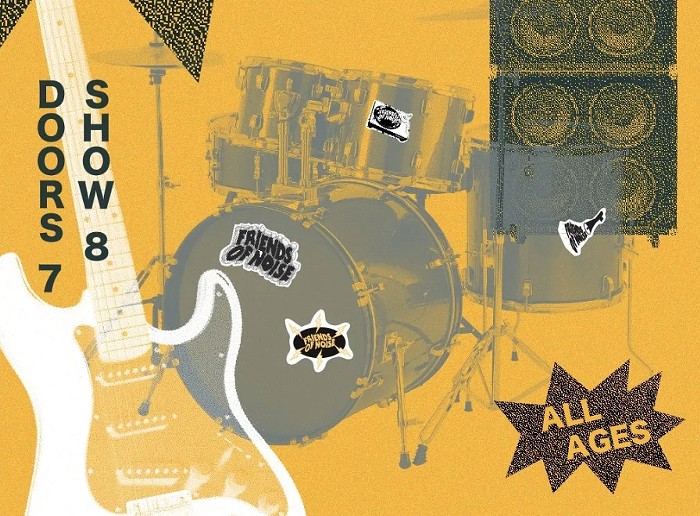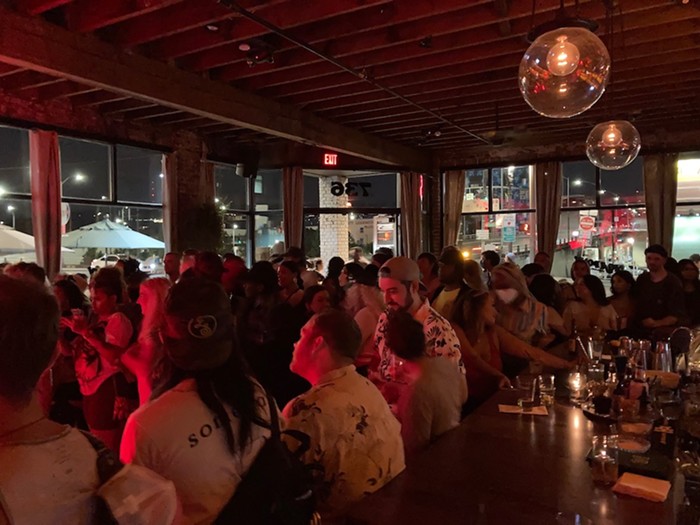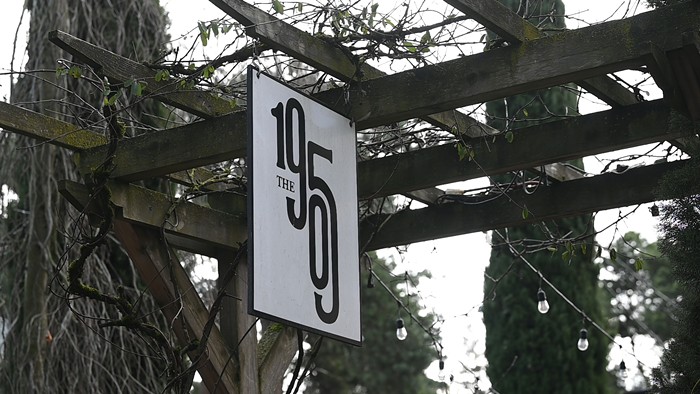WHEN IT COMES to band reunions, let's face it: Certain bands—the Smiths, Bikini Kill, Hüsker Dü—are never, ever getting back together. No matter how cordial relations might be (or might not be), the people involved in those groups have zero interest in rehashing the past, no matter how potentially lucrative it could be.
Beyond that small group of holdouts, though, it seems all bets are off. There's surprising news of one band or another reconciling nearly every week, fueled by an ever-present nostalgia market and the easy earnings of the festival circuit. If the demand is there, why not take advantage of it?
All of this was certainly a factor in the reunion between the four men who make up the pioneering shoegaze band Ride, who formed in Oxford, England, in 1988 and called it quits eight years later. According to singer/guitarist Andy Bell, however, there was some unfinished business for Ride to tend to, after watching other bands heal old wounds then thrive and surpass the work of their decades-old heydays.
"Watching the Stone Roses, who had gone away for 20 years, come back and do gigs that sounded like they were on fire," Bell says on the phone as Ride prepare to hop a ferry for some gigs in Ireland, "I felt like they're smashing it and sounding better than ever, maybe it can be done."
Since Ride's hometown reunion show at Oxford's O2 Academy in April, reports from the gigs the band has played have echoed Bell's response to the Roses. Their set at this year's Coachella Festival was heavy with favorites from the group's still-majestic first two albums (1990's Nowhere and 1992's Going Blank Again) and earliest EPs, and found the quartet—Bell, singer/guitarist Mark Gardener, bassist Steve Queralt, and drummer Laurence Colbert—stoking their mixture of '60s psychedelic pop and effects-pedal-laden rock to greater levels of heat and drama.
As successful as the reunion's been, though, the truth is that it needn't have taken as long as it did to happen. According to Bell, the members of Ride actually patched up their differences mere months after the fracture that followed the recording of their final album, 1996's Tarantula.
"We never had a falling out or some kind of major thing," he says. "We just felt like we'd burned out with it. We blamed ourselves for the reasons that things weren't working. Really, it was a lot of things outside our music. But when you're 25 years old, it's a lot easier to just throw your instruments on the ground and say, 'Fuck it,' and walk away."
After a run that found both Going Blank Again and its follow-up Carnival of Light cracking the Top 10 in the UK—and that ended with the lukewarm Tarantula getting virtually ignored in the wake of Britpop's rise—the members of Ride scattered. Gardener maintained a comfortable and varied solo career, while Bell wound up joining Oasis during that band's final years.
"I felt like I was definitely educated to survive anything after the Ride experience," Bell says. "I had the complete rise and fall of a band in six years. But I try to look at the positives in anything I've done. I've had a life in music that has lasted 25 years. I try to be grateful for that."



















